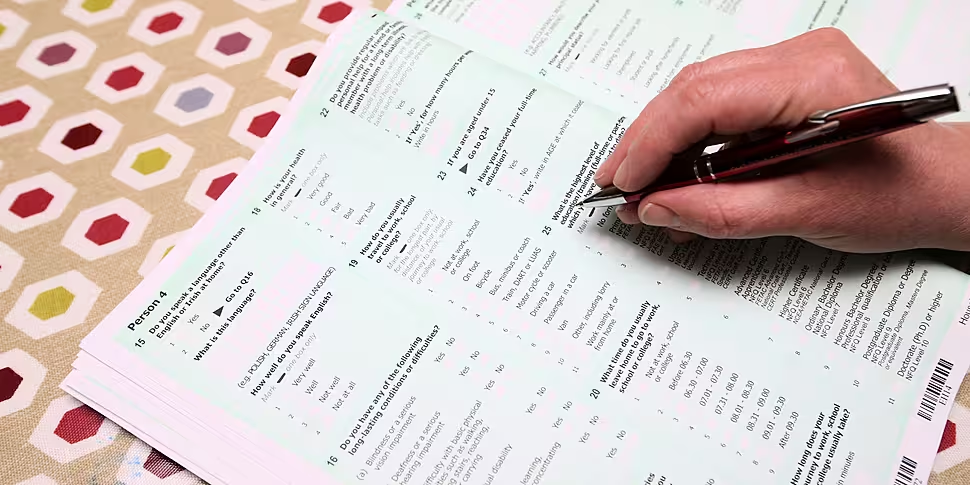People who do not declare themselves as male or female in this year's Census will be randomly assigned a gender.
The survey on Sunday April 3rd will ask respondents about their biological sex, rather than their gender identity.
The Central Statistics Office (CSO) says it recognises the importance of accounting for gender identity as distinct from sex.
It says: "Work is actively underway to introduce a question on gender identity for the next census.
"This includes testing questions in our Labour Force and Pulse surveys to ensure we ask the appropriate question and provide the appropriate range of answers.
"So while there is no question on gender identity in the 2022 census, it is anticipated that it will be included in the next census."
European Union legislation requires the census to ask this gender question, and also dictates that the only answers that can be provided are 'male' or 'female'.
However people who are uncomfortable about ticking one of these options may tick both the male and female boxes.
Patricia is from the Cork Transgender Peer Support Group. She told Lunchtime Live: "I was quite shocked when I saw there was no box for 'Other' even.
"I noticed that they seem to be more interested in how you get your internet, through mobile phone, and what religion you are."
She says the reason for the census, to give a clear picture of Irish society and assist in future planning, is not being followed.
"So anyone who does not identify as male or female was totally ignored, their existence wasn't acknowledged.
"It's a fundamental question of 'Who are you, how do you identify' - and that option, to either put down something other than male or female, was totally denied to these people".
And she says more needs to be done.
"The 'Planning for the Future section': it's very important for people to know how many people in the country do not identify as male or female going forward.
"If it's schools, there's so many social aspects to this question that needs to be worked out".
'Quite limiting'
Patrick McElligott is a gender and orientation support worker with GoshhOSHH.
He says gender identity and biological sex are separate issues.
"We're being asked for our sex and people are confusing that with gender, which is something that happens quite a lot.
"I think the sex question on this Census form is one of the only places on that form that gives us two options, it's quite limiting.
"And I think we would benefit from having space, where people can talk about their gender identity, or who they are, so we can better capture that.
"I also think the two options completely eclipse people who are intersex.
"So if you're not a person who does not have typically male or female reproductive organs, then you cannot be recognised in the Census - which I think is a massive issue".
He adds it is time for the Census to catch up with other areas.
"We're having the same conversations over and over again, and it's time to kind of catch up in some ways.
"We have the legislation around gender recognition, we have stuff like marriage equality.
"And I think it's time that we start updating this in a real meaningful way, where we can honour the real representation of the rich cultural presence of the Irish population that is out there".









